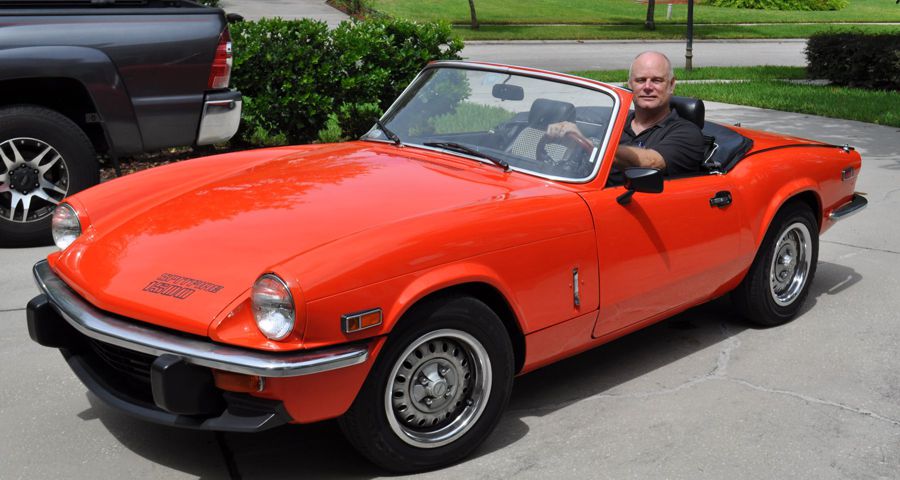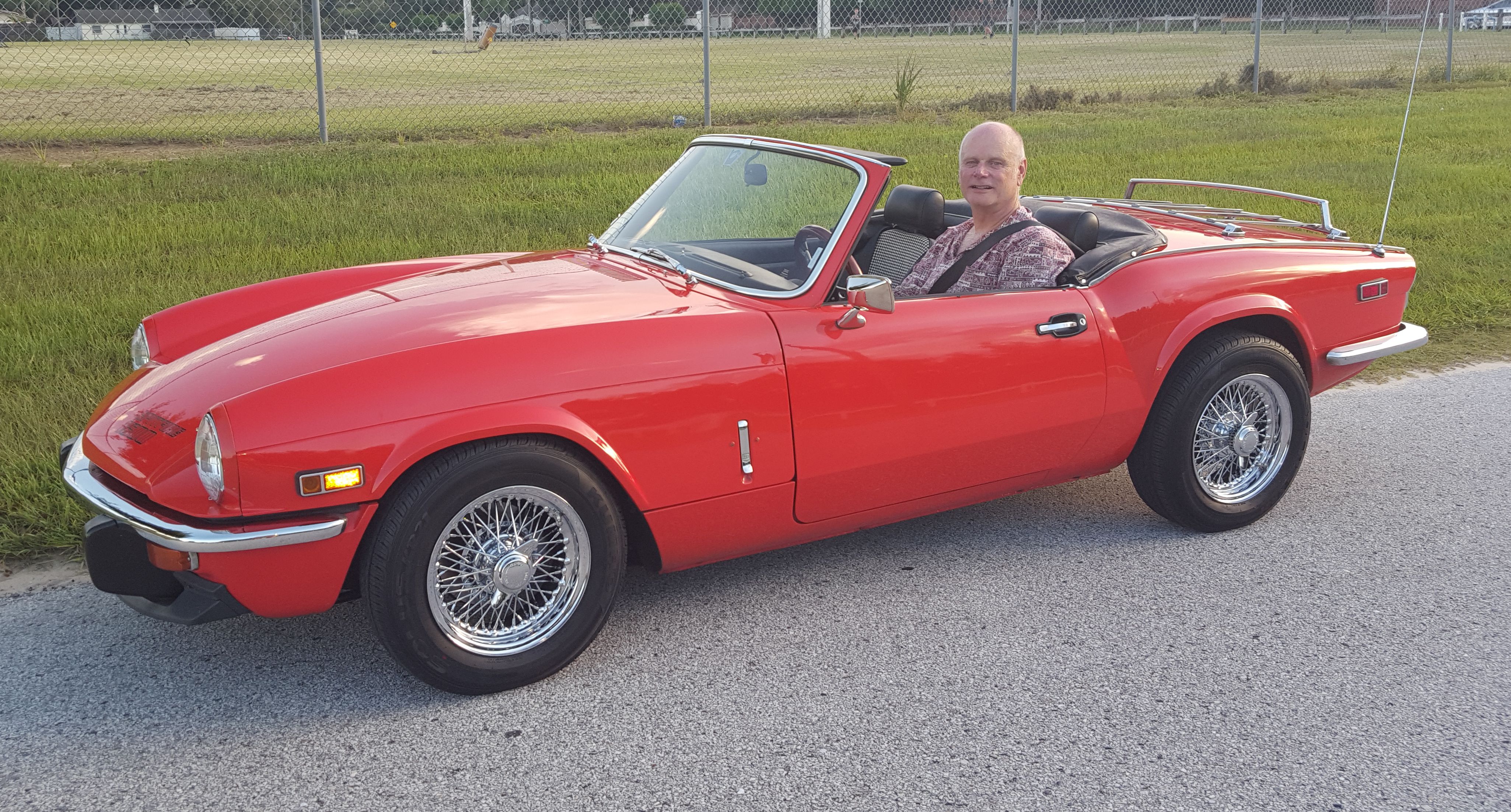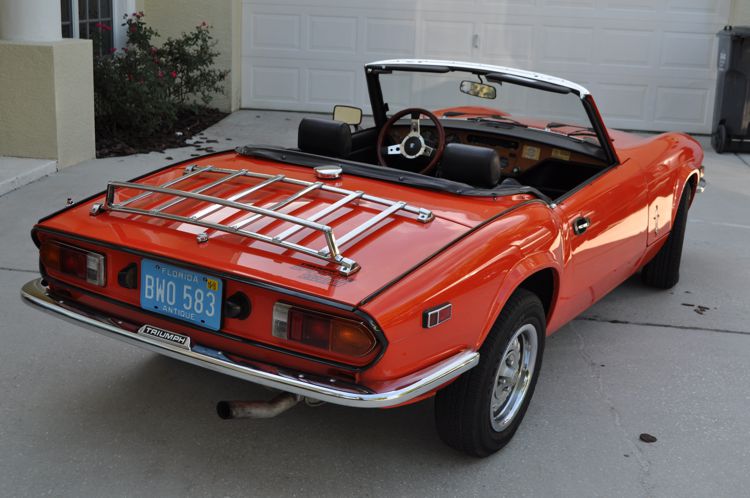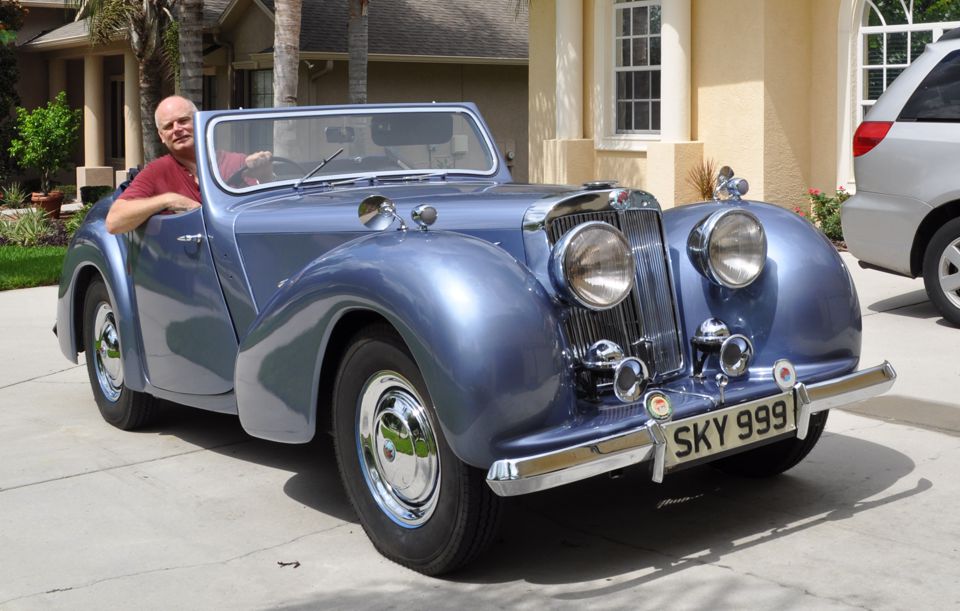Welcome to Jim Garey's Triumph page
I own a number of vintage Triumph sports
cars. They have an interesting history and are a joy to rebuild,
renew, maintain and drive.


This is my 1980 Spitfire. As
you can see, I've removed the original rubber bumpers and
replaced them with chrome bumpers. The lower photo shows the
new chrome wire wheels I installed a few weeks ago. I have
had this car since April 2015. It's in its original paint.
My plans are to take it from the American market standard
(rubber bumpers, single carburetor) to the British/European
market standard for that year (chrome bumpers, dual SU
carburetors). I have completed the chrome bumper conversion
and have purchased the SU carburetors along with the
required intake manifold and exhaust headers required. More
recently I acquired an original 6-slat style luggage
rack in excellent condition which I installed (see
photo below). I had the front bumper re-chromed since
this photo was taken. I have written a detailed
article about the bumper conversion which should eventually
be published on the TriumphExperience forum, but until then
it is available here:
Chrome
Bumper Conversion Article

This is my Spitfire with its
new luggage rack. I found the rack on ebay.

This is my 1948 Triumph
Roadster 2000. It was the first post WWII production car in
England. It is coach built, which means the body of the car
is metal supported on a wooden structure which in turn is
sitting on a steel chassis. Most of the exterior of the body
is made of aircraft aluminum which was surplus after the
war. The big front fenders are steel because they could not
bend aluminum that much. On my car the front fenders are
fiberglass reproductions although I have a set of NOS steel
front fenders that will go on eventually. The car can seat
three in the front seat and has two rumble seats in the
rear, marketed as a roadster that could haul a family of
five around. It is the last production car to be built that
has rumble seats, known in England as dickey seats. The car
was owned by my father who did much of the exterior work.
Since getting the car in 2008, I have removed the
differential, gearbox and overdrive and had them rebuilt. I
have cleaned and painted the entire steel chassis, found an
original bench seat, and done quite a bit of work on the
brakes, door fit, engine, cooling system and many other
things on the car. It currently has an electronic 123
distributor and a modern Weber carburetor, although I still
have the original parts, and any changes I have made can
easily be undone. The Triumph Roadster was only made for 4
years, from 1946 to 1949. There were about 2500 of the
original 1800 models built, which were replaced mid 1948
with the 2000 model like mine. It has a completely different
drive line than the 1800 model, using the Standard Vanguard
engine, gearbox and differential. The Vanguard drive
line is the predecessor to that of the TR2,3,4 and is
similar in a number of ways. The exterior of the 1800 and
2000 models are nearly indistinguishable. The easiest way to
tell is that the tail pipe is on the right side of the 2000
model and on the left for the 1800 models. There were
about 2000 Triumph Roadster 2000 models for a grand total of
about 4500 Triumph Roadsters. The demise of the Triumph
Roadster is usually attributed to the introduction of the
Jaguar XK120 in 1948. There were over 12,000 Jaguar XK120
models sold from 1948-1954. The Triumph Roadster had an old
fashioned look, did not handle very well, and was slow, with
a 72 mph top speed, while the XK120 was a more modern design
with a powerful engine and could go 120 mph for the same
price. Triumph did not produce another sports car until the
mid 1950's when the TR2/3 series was marketed.
I have written several articles
about the Roadster. They have been published in the Triumph
Roadster Review, but I include them here as well:
Spares Inventory for Triumph Roadster 2000
Photo 1
Photo 2
Photo 3
Photo 4
Photo 5
Photo 6
Photo 7
Photo 8
Photo 9
Photo 10
Photo 11


